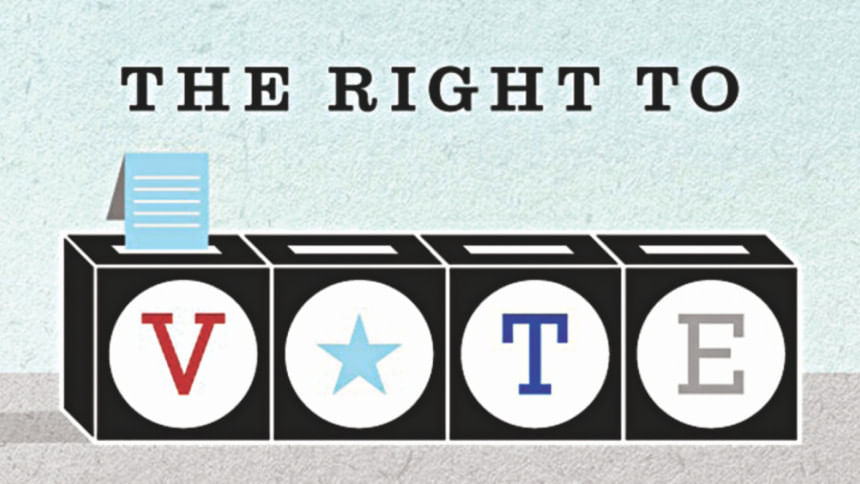The constitutional reality of Right to Vote

Democracy is believed to be one of the most successful political ideas in the present world. Democracy lets people speak their minds and shape their own as well as their children's future. However, democracy works only if people have the right to choose and exercise their rights freely and voluntarily. In the World Forum on Democracy at Warsaw in 2000, it was announced that “the will of the people” is the basis of the authority of any democratic Government thereby meaning that will of the people is ensured in a democratic State through the people's right to vote.
Our Constitution declares Bangladesh as a democratic republic. Supreme Court of Bangladesh has recognised 'democracy' as one of the Constitution's basic features, not amenable to abrogation. The Preamble of the Constitution of Bangladesh states that it shall be a fundamental aim of the state to create through democratic process, a socialist society. The constitutional spirit ensures that the voice of citizens is not to be kept unrecognised. This is possible only if the people get to elect their own representatives, by exercising their choice. And in furtherance thereof, Article 7(1) & 11 of the Constitution recognise citizens as supreme power holders who may choose their representatives through voting.
Right to vote is an inseparable part of democracy. The word 'vote' comes from the Latin word 'votum', which means 'to wish' – to express one's expression and to chose his representative voluntarily. As a democratic State, people's participation in the election is the manifestation of the right of citizenship. In Bangladesh, the right to vote is provided by the Constitution and the same is subject to certain disqualifications. Article 122 of Bangladesh Constitution and Section 7 of the Voter List Act, 2009 ensure the right to vote to every citizen above the age of 18.
However, it needs to be stressed that Article 122 of the Constitution provides right to vote on the basis of adulthood, but does not specifically mention the 'Right to Vote'. However, likewise right to privacy, this right as well can be impliedly read to be in the Constitution even though the same is not explicitly enshrined therein.
Aforementioned provisions have granted the right to vote to all Bangladeshi citizens of sound mind above the age of 18, irrespective of their caste, religion, social or economic status. The citizens can vote in national, district as well as local government body elections – none can be restrained or prevented from voting, unless they fulfill the specific criteria for disqualification.
If any is person is declared unsound by a competent court or is convicted for offense under the Bangladesh Collaborators (Special Tribunals) Order, 1972, his participation in vote shall be ceased. However, except for this disqualifications, every adult citizen has the right to vote. If any citizen is deprived of it by an order of election commission, he shall have the right to move the High Court Division under Article 102 of the Constitution of Bangladesh.
The writer is a student of Law, North South University.

 For all latest news, follow The Daily Star's Google News channel.
For all latest news, follow The Daily Star's Google News channel. 



Comments